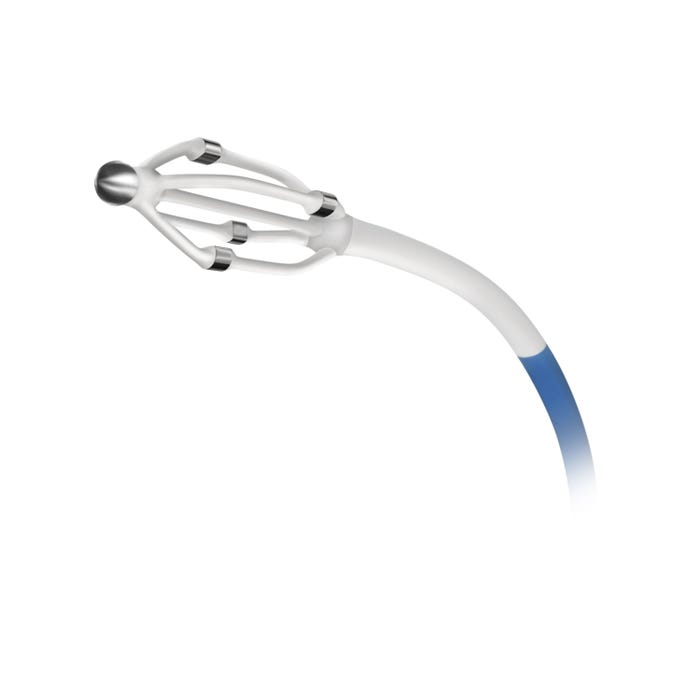August 30, 2012
Renal denervation (RDN) was among the most prevalent and buzzed-about topics pumping up the crowd at this year's European Society of Cardiology (ESC) Congress 2012. And in light of the parade of presentations focused on validating or making new claims of safety and efficacy for the still-nascent technology, it's becoming evident that the hypertension-treatment method may just live up to the hype.
|
St. Jude Medical's EnligHTN renal denervation catheter-based ablation system. Image provided courtesy of St. Jude Medical, Inc. |
Boasting the potential to become a $5-billion market, renal denervation is an area actively being pursued by such medtech powerhouses as Medtronic, St. Jude, and Covidien because of the high volume of hypertension patients that do not respond to drug treatments. Patients with refractory, or resistant, hypertension, which is defined as not experiencing appropriate blood pressure reduction when on at least three antihypertensive drugs at the optimal doses, account for approximately 12% of all hypertensive patients, according to ESC presenter Johannes Mann.
Employing a radiofrequency- or ultrasound-based catheter, the minimally invasive technology targets renal sympathetic nerves, which have been identified as being hyperactive in refractory hypertension. Doing so, researchers claim, can lower blood pressure and improve arterial stiffness with few or no complications observed. And while further studies are needed, renal denervation may, in turn, reduce the risk of myocardial infarction and stroke.
"Besides peripheral blood pressures, RDN improved central blood pressures and arterial stiffness, i.e. pulse wave velocity (PWV)," notes Klas Franzen, an ESC presenter from the University Hospital of Schleswig-Holstein. "According to age-adjusted reference values, the improvement of approximately 1m/s PWV observed in our study could be interpreted as a blood vessel rejuvenation of almost 10 years. This suggests that RDN might be a fountain of youth for blood vessels in patients with therapy resistant hypertension."
In addition to potentially being a fountain of youth for blood vessels, renal denervation also shows promise for patients with advanced heart failure. Presented at ESC, results of the Olomouc I pilot study indicated that the contractile function of the left side of the heart improved from 25±12% to 31±14% (p<0.01) after one year in patients with advanced heart failure treated with renal denervation and a standard pharmacological treatment. Patients that received drug treatments alone, in contrast, did not demonstrate any changes in contractile function.
"The improvement of the contractile function of the left side of the heart by more than 10% in patients after renal denervation was a surprise," comments presenter Milos Táborský of the University Hospital Olomouc. "This parameter has practically not changed in patients treated by the classic drugs. The difference in response might be explained by a continuous decrease of the renal sympathetic activity in the complex pathophysiology of heart failure." Renal denervation, he notes, could help to stabilize advanced heart failure in patients.
You May Also Like



